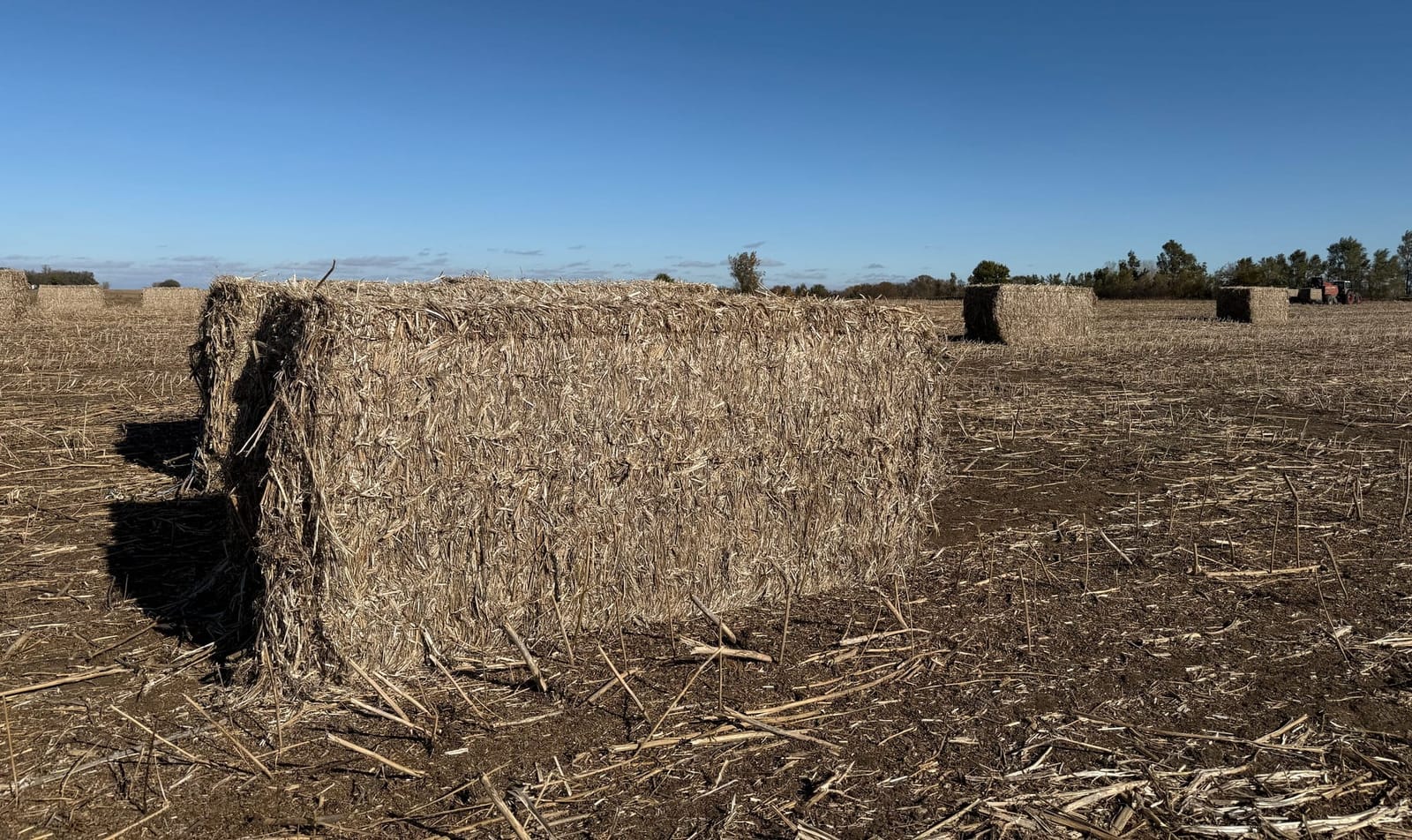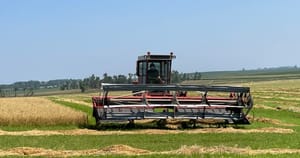WINFRED, S.D. – South Dakota, the No. 1 producer of hemp fiber in the nation, gets a major addition to its hemp processing industry later this year that will help expand the state's capacity to grow and create products.
But it comes as federal legislation tied to the reopening of the government after a seven-week shutdown seeks to change how the plant can be used, which some industry members said poses an existential threat to its growth.
It's representative of the growing two-sided hemp industry: one that produces goods like animal bedding, hemp wood and plastic, and another that creates consumable goods for humans and animals, some of which are intoxicating.
Hemp still attractive to South Dakota farmers
John Peterson, founder of Dakota Hemp, an industrial hemp farm near Wakonda, is nearly ready to open the state's second hemp processing facility. It's slated to begin operation by the end of the year and will have the capability to process hemp fibers and hurds, the coarse, woody parts of the plant, into a variety of products.
At the farm, Peterson also grows cannabidiol, or CBD, plants, which create Dakota Hemp-branded CBD products like tinctures, lotions and pet treats, among other items that are sold throughout the state.
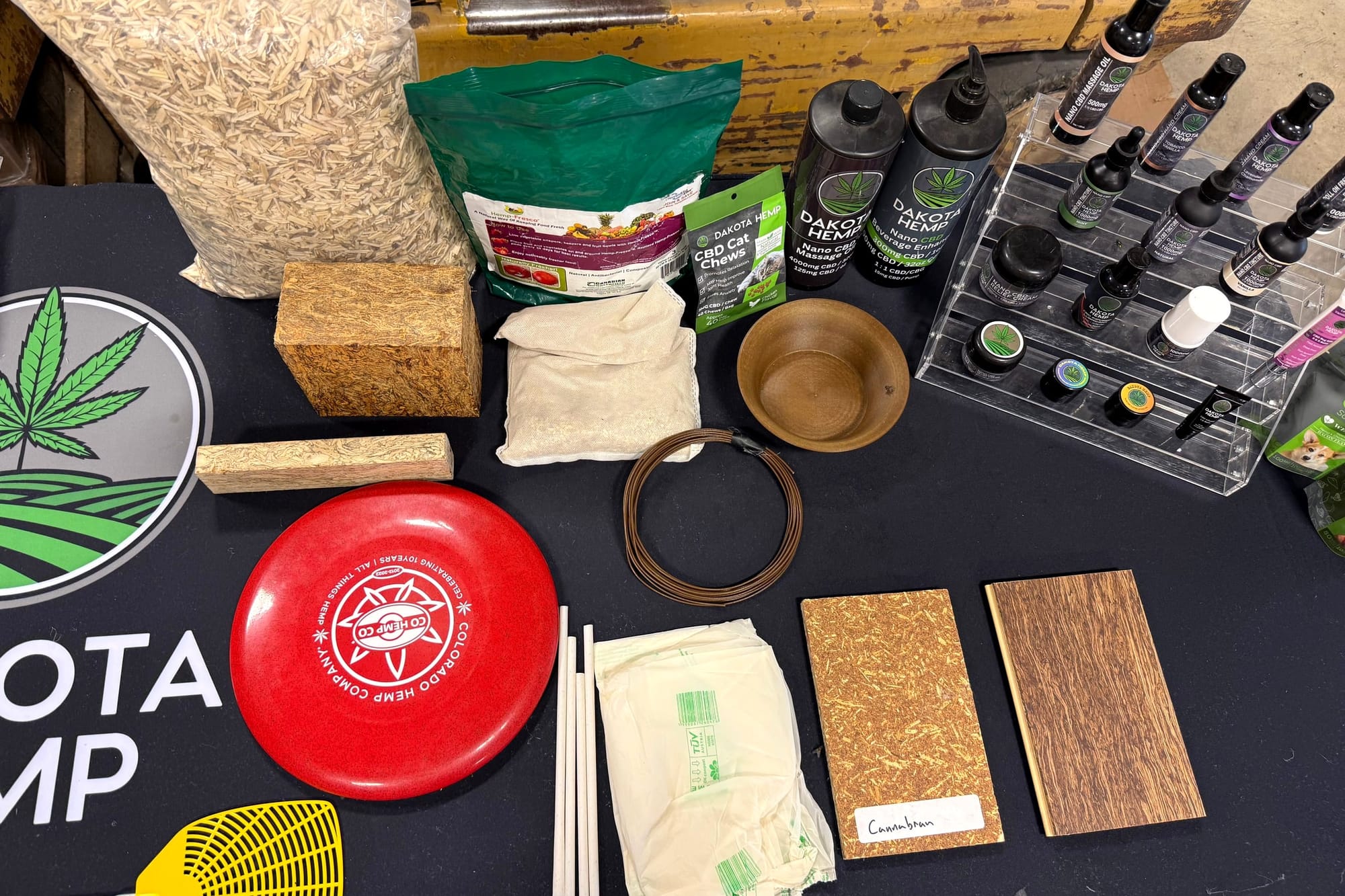
Hemp farming remains popular in South Dakota, where adding a third row crop proves attractive to farmers looking for increased diversity in their income streams.
Ken Meyer, owner of Complete Hemp Processing in Winfred and member of the farmer advisory council for the U.S. Hemp Roundtable, told News Watch that he regularly fields calls from farmers looking to grow the crop.

“People just call us, saying, ‘Can I grow hemp? Can I grow this many acres?’ They're looking for, waiting to have, income on the farm,” Meyer said.
The U.S. Department of Agriculture reported in April that the 2024 value of hemp production was $445 million – up 40% from 2023. That includes hemp grown in the open and in protective facilities.
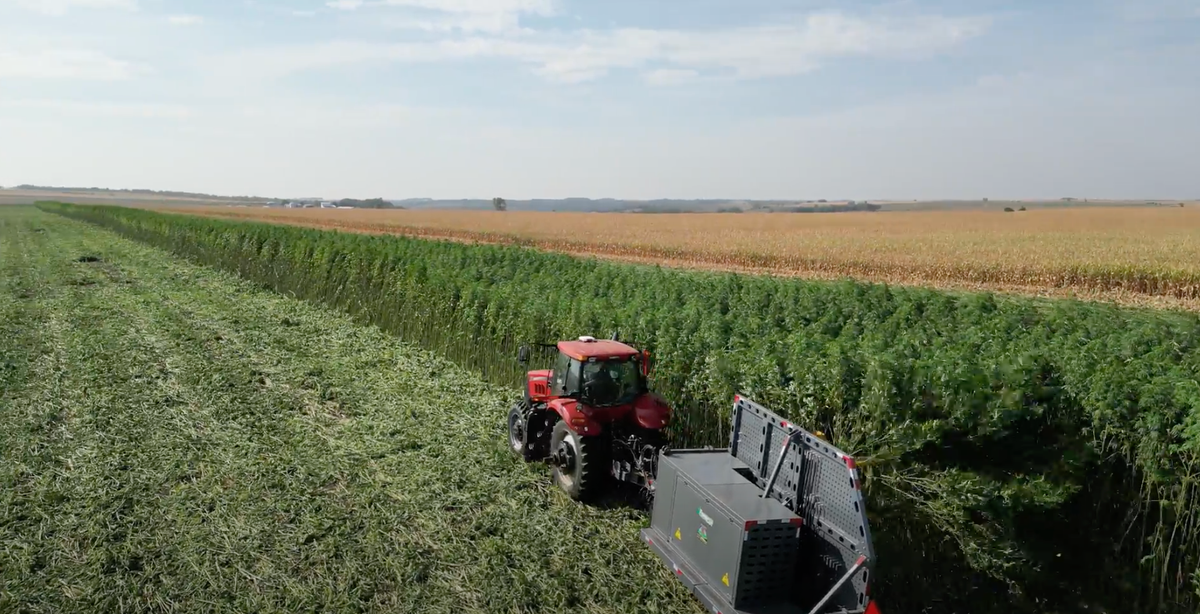
Adding Peterson's processing facility into the mix will allow the state to keep its commanding position in the industry. Last year, South Dakota rose to the No. 1 spot for hemp fiber production in the country. Now, Peterson said, the crop has gotten so popular that processing facilities can't keep up with the demand.
"We'll have about 12 people working (at the processing facility)," Peterson said. "But (South Dakota) should have so many more (processors). I wish I could just look ahead 10 years and see where (the industry) in South Dakota is at."
Last year, there were hemp bales as far as the eye could see in Winfred, where Meyer's processing facility is located. Today, most of those bales have disappeared.
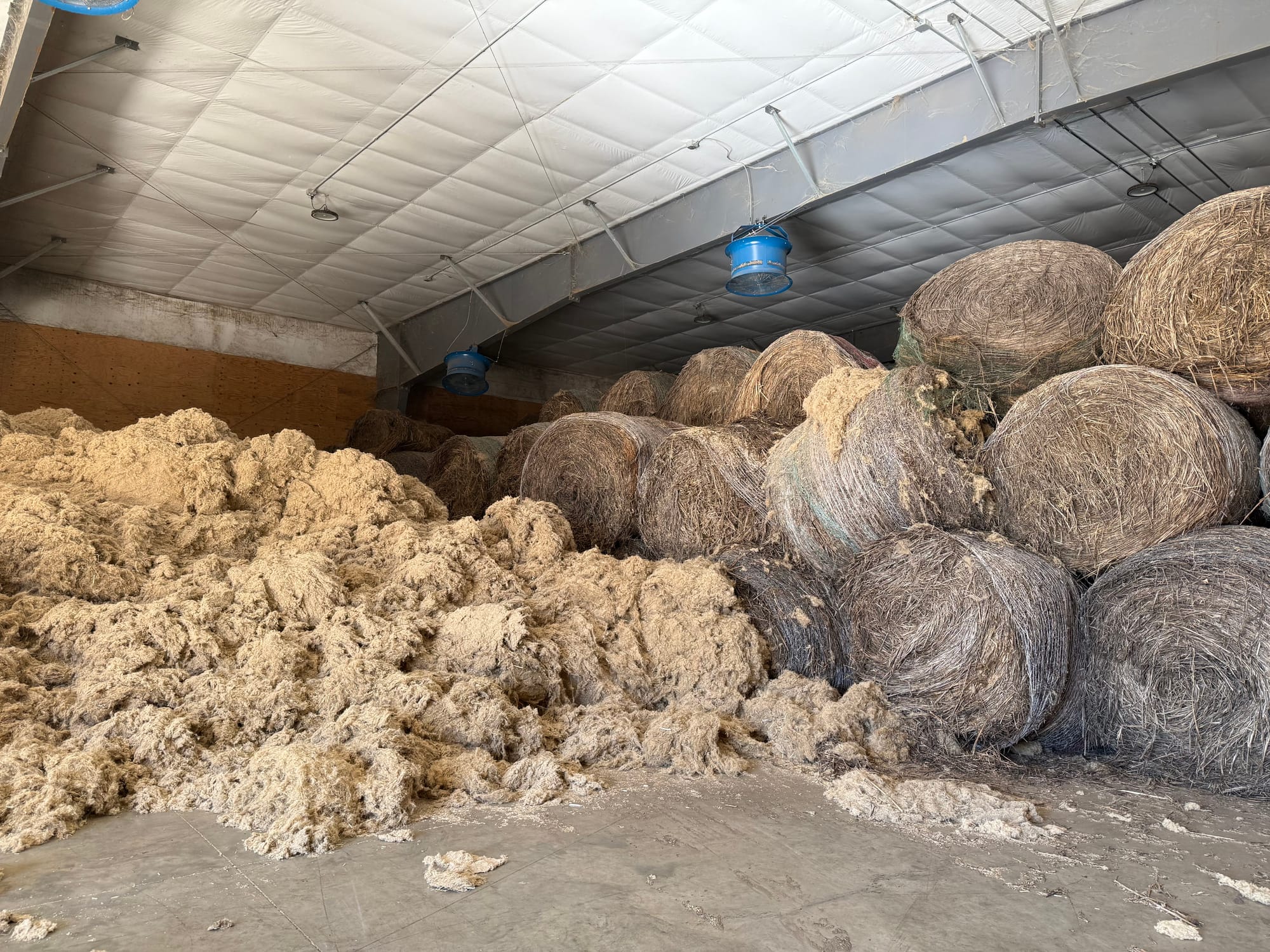
That’s a good thing, Meyer said. It means that his processing facility is keeping up with the amount of hemp that farmers in the state are growing.
“We're trying to run hard and get things done. And sometimes we run into bumps and it's not smooth, but it is progressing. So we're excited about that,” Meyer said. “We need to catch up in processing because obviously, if we're not processing as fast as they grow it, they slow down growing. But interest to grow is at an all time high.”
New federal legislation causes uncertainty
Though hemp has proven a successful venture for many South Dakota farmers, Meyer and other industry members are concerned that the 2026 Agricultural Appropriations package in Congress will cause chaos in the industry.
The package includes language that redefines hemp and how its products can be sold.
Under the language proposed by Kentucky Republican Sen. Mitch McConnell, consumable hemp products would be legal only if they contained a “non-quantifiable amount of THC.” THC, or tetrahydrocannabinol, is the intoxicating compound in the marijuana plant.
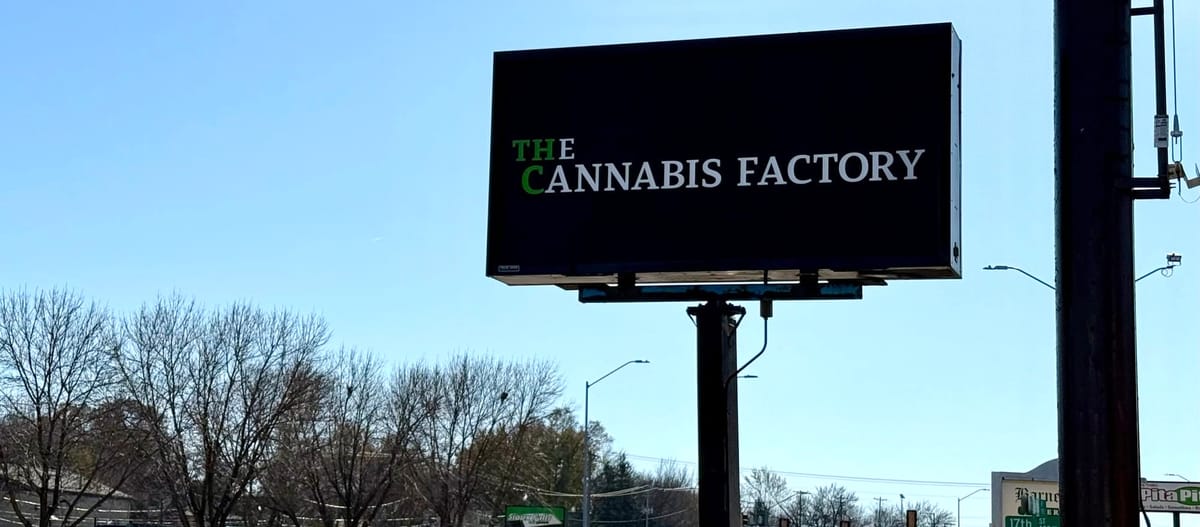
The appropriations package, which had its passage delayed by the government shutdown, has been passed by the Senate and the House and was signed by President Donald Trump Wednesday evening.
Hemp farmers, processors and product sellers will have one year to comply with the new regulations.
Meyer expressed concern that many hemp CBD products, like those that Dakota Hemp creates, would be forced to cease production because they often contain some measurable level of THC, though those levels are not enough to be intoxicating.
The federal legal limit for THC content in a hemp plant is 0.3% by dry weight. And Meyer and Peterson said that all hemp plants grown in the U.S. contain some quantifiable amount of THC.
Meyer said that he believes the definition change will also cause general confusion for farmers, processors and other industry members, even those who make nonintoxicating hemp products.
“It's just not doable. It's not possible,” Meyer said. “There's risk for us as farmers. What will be the end of the process, where will we end up? We just want to know, where are we at?"
Industrial hemp farmers are subject to several regulations in South Dakota, including registering for a license with the state Department of Agriculture and Natural Resources and agreeing to regular sampling of their crop and harvest.
Popular consumable hemp products on the chopping block
The proposed language change specifically bans quantifiable amounts of THC in consumable products, a move that McConnell said would close the "unintended loophole" created in the 2018 Farm Bill, which legalized industrial hemp growth.
Hemp-derived THC products have gained a strong foothold across the country, including in states where recreational marijuana is illegal, like South Dakota. South Dakotans can stop in most liquor stores and some bars and purchase THC seltzers – intoxicating beverages that can produce effects similar to traditional cannabis use.
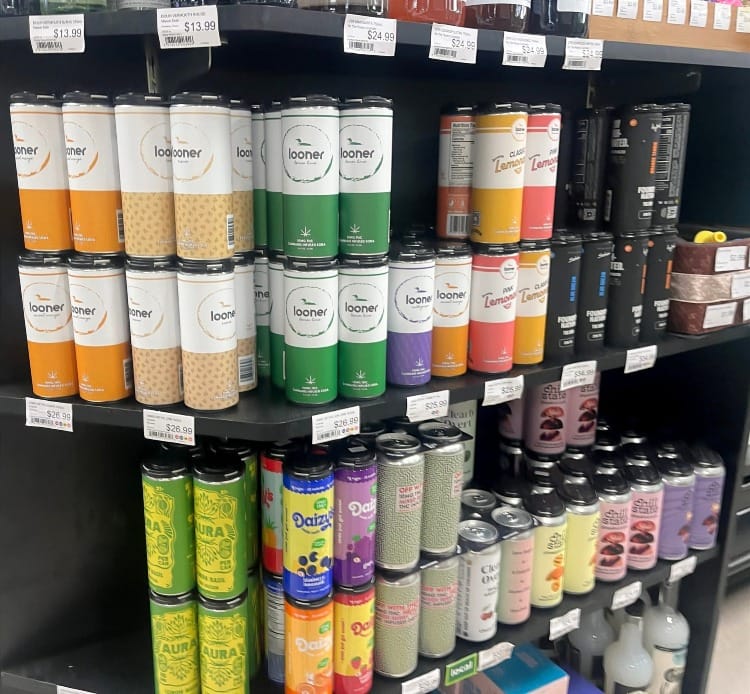
Other products that have gained popularity include gummies and vapes, which are often sold in unregulated smoke shops.
South Dakota Attorney General Marty Jackley was among 38 state attorneys general to urge Congress to close the loophole and ban intoxicating hemp products. The coalition's letter said that "the entire synthetic THC industry rests on a foundation of illicit conduct" and expressed concerns that those products were more potent than marijuana and being marketed to minors.
Hemp debate divides Republicans
Sen. Rand Paul, a Kentucky Republican, has been one of the most outspoken lawmakers in opposition to the hemp language change. Delivering remarks on the Senate floor, Paul said the language change will "destroy hemp farming in Kentucky and across the United States" and "regulate the hemp industry to death."
Paul voted against his fellow Kentucky congressman McConnell's push to ban intoxicating hemp products – which in turn voted to keep the government closed. He was the only Republican to do so but has not been the only Republican to speak in support of hemp. In September, Rep. James Comer, another Kentucky Republican, led 26 other lawmakers, both Democrats and Republicans in asking Speaker of the House Mike Johnson to reconsider the language change.
Industrial hemp grown and processed in South Dakota is primarily used for products like animal bedding, Meyer said. But nationwide, much of the hemp industry finds its footing in hemp CBD products and hemp-derived THC products.

Art Massolo is vice president of business development for Cycling Frog, an Oregon-based THC product company that sells its low-dose seltzers in South Dakota. Massolo told News Watch that people are drinking less alcohol and looking to replace some of that consumption with hemp-based drinks.
"Alcohol, who are our partners in a lot of this, see THC beverages as the future for their growth," Massolo said. "People aren't drinking as much beer, wine and spirits right now. We've been a wonderful boon to the alcohol industry."
Massolo opposes the language change in the Appropriations bill, but said that unregulated products are posing a threat to legitimate companies that require age verification to purchase their products and specifically target adults. He told News Watch that the industry wants regulation of their products but not an all-out ban.
"We are worried about the bad actors that are putting THC and other molecules that we don't even know that much about into boxes that look like Skittles or potato chips," Massolo said. "They sell those everywhere, and that's why we need regulation. We think that normalizing (THC beverages) is for the better nature of our society."

This story was produced by South Dakota News Watch, an independent, nonprofit organization. Read more stories and donate at sdnewswatch.org and sign up for an email for statewide stories. Investigative reporter Molly Wetsch is a Report for America corps member covering rural and Indigenous issues. Contact her at molly.wetsch@sdnewswatch.org.

